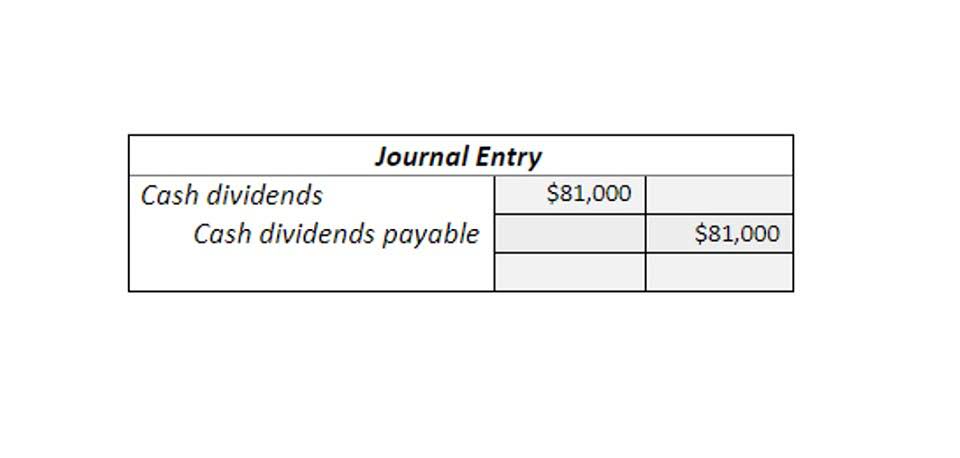
External auditors review XYZ Manufacturing’s financial statements and assess the company’s financial health and operational viability. They consider factors such as historical performance, management’s plans, and potential risks to determine if the going concern assumption is appropriate. The nature of these disclosures is governed by the applicable financial reporting framework, such as the International Financial Reporting Standards (IFRS) or Generally Accepted Accounting Principles (GAAP). This may encompass plans for asset disposals, restructuring of operations, or seeking new financing. Auditors play a crucial role in assessing the going concern assumption and providing an opinion on the company’s financial statements.
- KPMG explains how an entity’s management performs a going concern assessment and makes appropriate disclosures.
- The concern principle in accounting is the going concern principle that assumes a business will continue the operations and not be forced into liquidation.
- The going concern assumption is that a business will remain active for the foreseeable future.
- Essentially, what accrual accounting means is that the date on which cash is paid or received is often not necessarily the same as the date that the actual transaction takes place, but this should not delay the transaction being recorded.
- Once an auditor examines a company’s financial statements to see if the operating conditions of the entity are suitable for the long-term continuity of the business, they will issue a certificate accordingly.
What is the Going Concern Concept?

Investors, creditors, and regulators rely on financial statements prepared under the going concern assumption to make informed decisions. If a company fails the going concern assumption, it may affect the valuation of its assets, liabilities, and equity, ultimately impacting the stakeholders’ decision-making process. Ultimately, the Going Concern Assumption is essential for presenting a realistic and dependable view of an organization’s financial position and performance. Embracing this principle supports strategic planning, risk management, and long-term growth, ensuring that businesses remain resilient and capable of navigating the complexities of the modern economic landscape. As the business environment continues to evolve, the Going Concern Assumption will remain a cornerstone of financial accounting, underpinning the reliability and transparency of financial reporting for years to come. These financial statements have been prepared on a going concern basis, which assumes that the company will continue to operate and generate profits in the future.
The significance of accounting principles

As FA2 only relates to unincorporated businesses (sole traders and partnerships), this might seem like an unrealistic differentiation. However, a business entity is not necessarily a separate legal entity and candidates should simply deal with transactions from the perspective of the business. Arguably, the biggest risk in this regard is that a business will be inclined to be optimistic about results and going concern therefore overstate assets and income or understate liabilities and expenses. There could be financial incentives for business owners to do this and therefore the prudence principle must be observed to ensure this does not happen.
Economic Impact on Going Concern Assumption
Billie Anne is a freelance writer who has also been a bookkeeper since before the turn of the century. She is a QuickBooks Online ProAdvisor, LivePlan Expert Advisor, FreshBooks Certified Partner and a Mastery Level Certified Profit First Professional. In 2012, she started Pocket Protector Bookkeeping, a virtual bookkeeping and managerial accounting service for small businesses. The going concern assumption is that a business will remain active for the foreseeable future. All of this can be explained by considering the transaction that was included in the discussion on accruals. This was that Andrea agrees to buy goods from Brian on 25 January and Brian agrees that Andrea can wait until 25 March What is bookkeeping to pay for the goods.
Going Concern Concept Features, Significance and Limitations

It functions without the threat of liquidation for the foreseeable future, which is usually regarded as at least the next 12 months or the specified accounting period (the longer of the two). Hence, a declaration of going Catch Up Bookkeeping concern means that the business has neither the intention nor the need to liquidate or to materially curtail the scale of its operations. As mentioned earlier, it is not the auditor’s responsibility to determine whether, or not, an entity can prepare its financial statements using the going concern basis of accounting; this is the responsibility of management.

Helping clients meet their business challenges begins with an in-depth understanding of the industries in which they work. In fact, KPMG LLP was the first of the Big Four firms to organize itself along the same industry lines as clients. For the past 52 years, Harold Averkamp (CPA, MBA) hasworked as an accounting supervisor, manager, consultant, university instructor, and innovator in teaching accounting online.
Define the Going Concern Concept
The concept of “going concern” is a fundamental principle in accounting, shaping how businesses report their financial health and longevity. It assumes that an entity will continue its operations into the foreseeable future without any intention or need to liquidate. The going concern concept is not clearly defined anywhere in generally accepted accounting principles, and so is subject to a considerable amount of interpretation regarding when an entity should report it. However, generally accepted auditing standards (GAAS) do instruct an auditor regarding the consideration of an entity’s ability to continue as a going concern.
